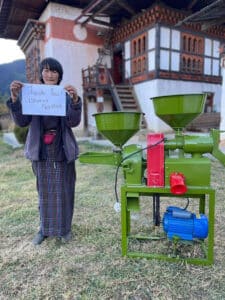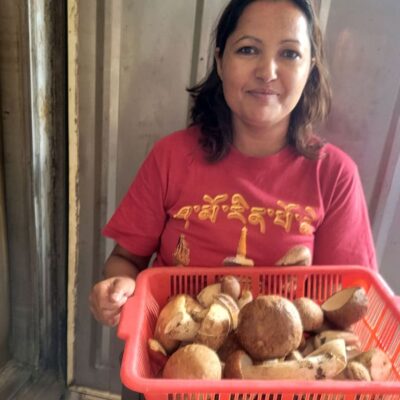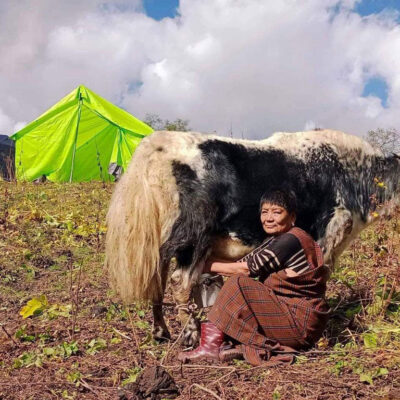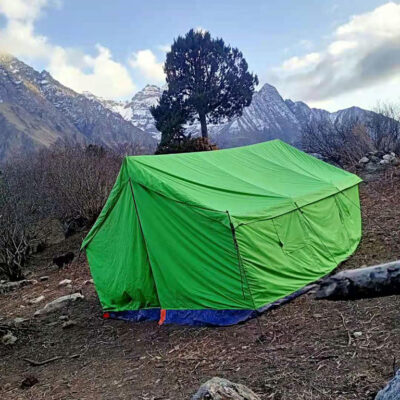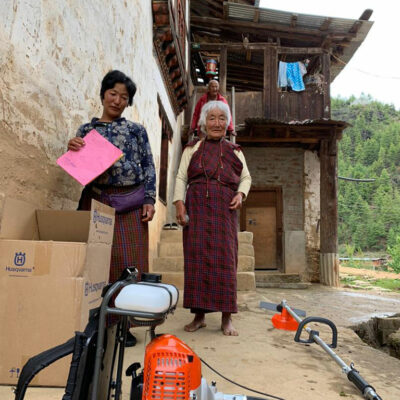This post is also available in: Deutsch (German)
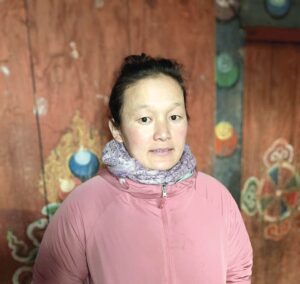 By Dorji Bidha, Drukgyel Farmers
By Dorji Bidha, Drukgyel Farmers
In today’s world more than sixty percent of Bhutan’s population live in rural areas and agriculture remains one of the most important sources of livelihood for many Bhutanese, especially woman.
In recent times large numbers of men have been leaving their farmland to seek better income opportunities in towns, leaving women in charge of the agricultural toil. Two such ladies are my aunt Yangchay and Dema, who despite being in their late forties are both shouldering a massive amount of responsibility in day-to-day farmwork.
Wildlife conflict
Wild boars force my aunties to stay up all night guarding their potato and rice fields. Yet their work burdens are even heavier as they also have additional household- and community work requirements. On top of that, the rural-urban migration has caused an acute labour shortage with women left behind and required to take on duties traditionally done by men.
Woman contribute to the labour force in agriculture and they are directly affected by the challenges associated with limited technology, labour shortage, inadequate institutional support, limited access to financial sources and low productivity. This leads to vulnerable livelihoods and considerable drudgery for women farmers.
 Mechanization makes work easier
Mechanization makes work easier
Recently my aunts were gifted with a huge rice miller and a rice cutter machine by our generous sponsors from Bhutan Network. For the past several years Bhutan Network has been providing us with agricultural machines that bring multiple benefits, not least reducing women’s hardship, labour requirements, as well as contributing to increased efficiency in their operations.
While it is possible to rent farm tools within the village, this is neither customer friendly nor an effective long-term solution. For instance, my aunt Yangchay has to carry on her back a huge rice sack, weighing exactly hundred kilos, down the hill simply to reach a rice milling machine! It’s a very strenuous task for a woman of her age to undertake.
In contrast, my aunt Dema has been presented with a rice cutter, which will reduce her labour requirements and at the same time enhance the productivity of her farmland.


